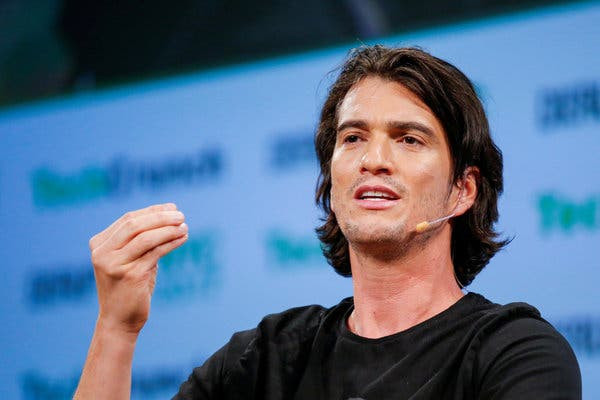WeWork has been struggling to achieve its target of an initial public offering (IPO) this year, more so now, as CEO Adam Neumann announced on Tuesday that he will step down from his seat. Instead, he will serve as a nonexecutive chairman.
According to CNBC , Neumann explained that the decision for his exit as CEO came after a tremendous uproar over the valuation and administrative processes of WeWork. Industry experts said that Neumann's exit may further affect the co-sharing startup's plans to go public.
Neumann said in a statement that the move was agreed on by other executives to be "in the best interest of the company," especially since the company continues to work its way into the hearts of investors.
Before the announcement of his exit was made, Neumann was WeWork's largest stockholder. He has around 115 million shares and the company's ownership structure allowed him to have superior control over decisions and other aspects of the company.
With his decision to step down, Neumann's voting shares will dramatic decline from 10:1 to 3:1. The shakeup in authority is also expected to further shine a light on the falling out between Neumann and one of WeWork's largest investors, SoftBank chairman Masayoshi Son, who spearheaded the call to replace Neumann.
Executives have been trying to get a hold of meetings with investors and bankers to discuss ways through which the concerns from investment experts can be resolved. Among the potential aspects of discussions would cost-reduction plans.
Meanwhile, Adjunct Professor at Cornell Law School, Dan Alpert, wrote in an op-ed on Business Insider shortly after the announcement that even if Neumann is set to leave his scrutinized post, WeWork still has a lot of issues to resolve.
Alpert, who is also the founding managing partner of Westwood Capital LLC, noted that if WeWork falls apart continuously, the New York and London office markets will definitely feel the heat.
In Manhattan alone, the company manages over 5.3 million square feet of office space for lease. Alpert further argued that the firm's business model is not just risky for itself but for tenants and landlords involved in the business.
The company's expected valuation is said to be way above how much it should really be valued. Investors have also demanded more reasonable factors to invest in the business.
Neumann will be replaced by former CFO Artie Minson, who served at Time Warner Cable and AOL previously, and Vice-Chairman Sebastian Gunningham, a former executive at Amazon.





